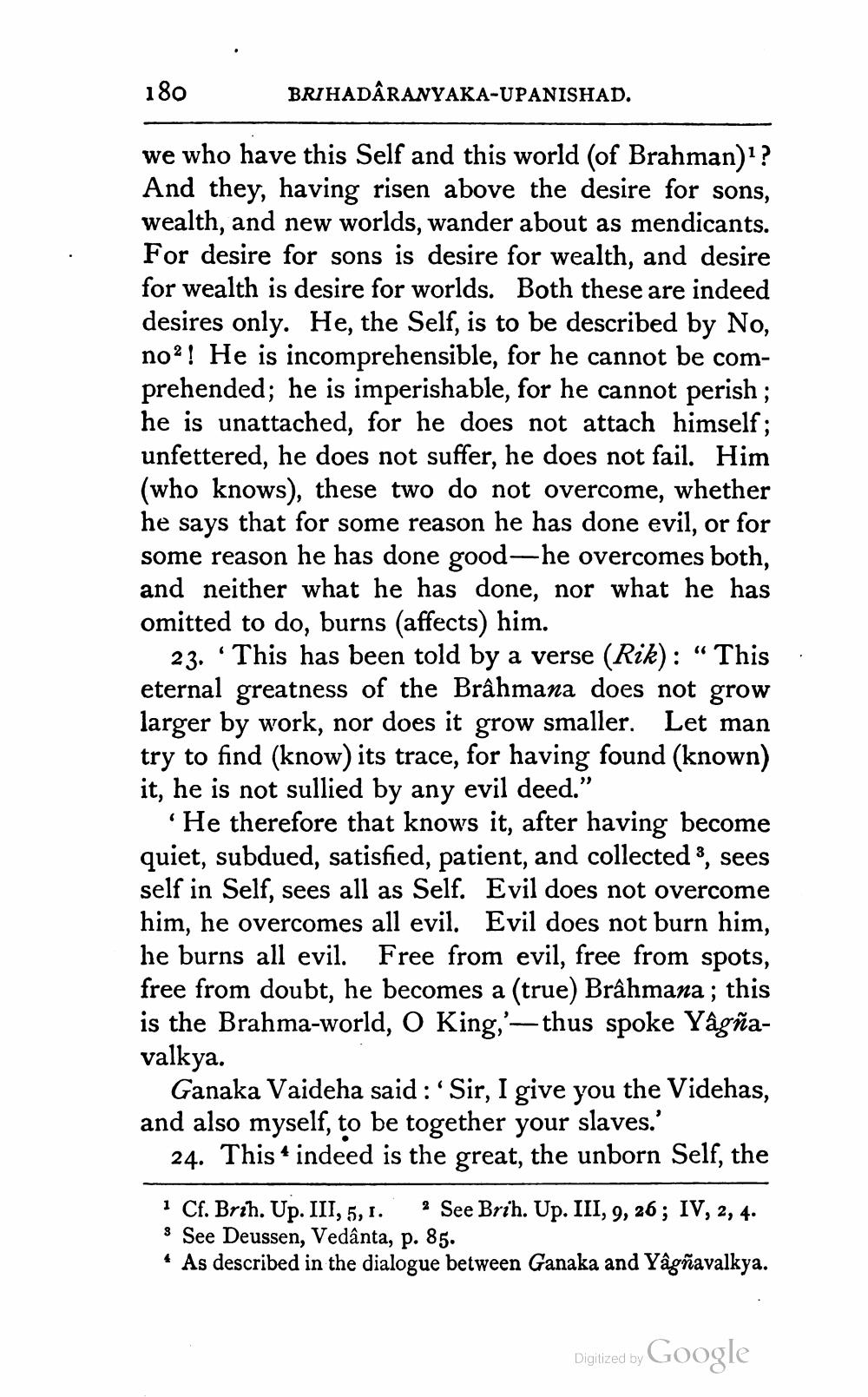________________
180
we who have this Self and this world (of Brahman)1? And they, having risen above the desire for sons, wealth, and new worlds, wander about as mendicants. For desire for sons is desire for wealth, and desire for wealth is desire for worlds. Both these are indeed desires only. He, the Self, is to be described by No, no2! He is incomprehensible, for he cannot be comprehended; he is imperishable, for he cannot perish; he is unattached, for he does not attach himself; unfettered, he does not suffer, he does not fail. Him (who knows), these two do not overcome, whether he says that for some reason he has done evil, or for some reason he has done good-he overcomes both, and neither what he has done, nor what he has omitted to do, burns (affects) him.
23. This has been told by a verse (Rik): "This eternal greatness of the Brahmana does not grow larger by work, nor does it grow smaller. Let man try to find (know) its trace, for having found (known) it, he is not sullied by any evil deed."
BRIHADARANYAKA-UPANISHAD.
C
'He therefore that knows it, after having become quiet, subdued, satisfied, patient, and collected 3, sees self in Self, sees all as Self. Evil does not overcome him, he overcomes all evil. Evil does not burn him, he burns all evil. Free from evil, free from spots, free from doubt, he becomes a (true) Brâhmana; this is the Brahma-world, O King,'-thus spoke Yâgñavalkya.
Ganaka Vaideha said: 'Sir, I give you the Videhas, and also myself, to be together your slaves.'
24. This indeed is the great, the unborn Self, the
1 Cf. Brih. Up. III, 5, 1. 2 See Brih. Up. III, 9, 26; IV, 2, 4. 3 See Deussen, Vedanta, p. 85.
* As described in the dialogue between Ganaka and Yâgñavalkya.
Digitized by
Google




